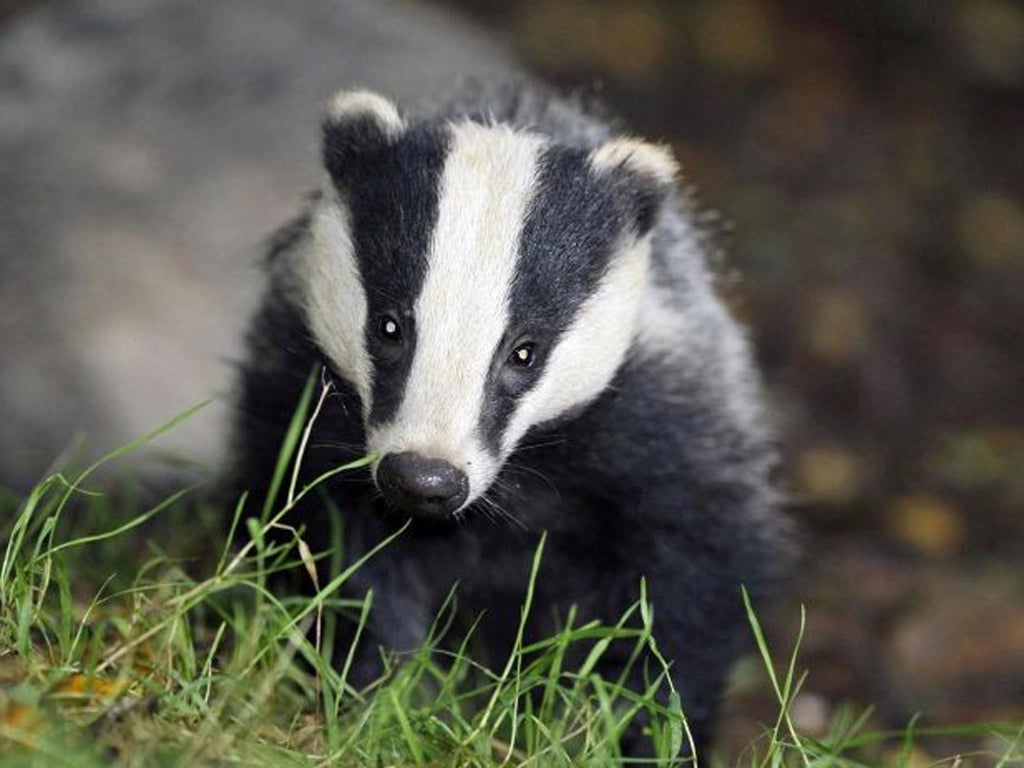Badger culls given go-ahead in Gloucestershire and Somerset

Your support helps us to tell the story
From reproductive rights to climate change to Big Tech, The Independent is on the ground when the story is developing. Whether it's investigating the financials of Elon Musk's pro-Trump PAC or producing our latest documentary, 'The A Word', which shines a light on the American women fighting for reproductive rights, we know how important it is to parse out the facts from the messaging.
At such a critical moment in US history, we need reporters on the ground. Your donation allows us to keep sending journalists to speak to both sides of the story.
The Independent is trusted by Americans across the entire political spectrum. And unlike many other quality news outlets, we choose not to lock Americans out of our reporting and analysis with paywalls. We believe quality journalism should be available to everyone, paid for by those who can afford it.
Your support makes all the difference.Controversial badger culling to tackle tuberculosis in cattle is set to go ahead this summer, after two pilot schemes were given the green light today.
Pilot culls in west Gloucestershire and west Somerset, which will see the killing of 70% of badgers in each area, making a killing total thought to be around 5,000, have been authorised by Government agency Natural England after final licence conditions were met, with a third scheme in Dorset being prepared as a reserve to prevent any further delays.
The two pilot culls were delayed last year in the face of bad weather and the discovery that there were more badgers in the areas than previously estimated.
Environment Secretary Owen Paterson told farmers at the National Farmers' Union conference in Birmingham that he was committed to making sure the pilots went ahead.
He said tackling bovine TB had cost the taxpayer £500 million in the past 10 years, and costs could reach £1 billion over the next decade if the disease was left unchecked.
He said that research in the UK had shown that culling badgers, which can transmit TB to cattle, could reduce the levels of the disease in herds, and that Britain had to learn from experience elsewhere that the tuberculosis could not effectively be curbed without tackling the problem in wildlife.
He said he wanted to see effective and affordable vaccines deployed for both cattle and badgers as quickly as possible but it was likely to take another decade before the deployment of a cattle vaccine which is validated and legal under EU regulations could take place.
Mr Paterson said: "Bovine TB is spreading at an alarming rate and causing real devastation to our beef and dairy industry. "
He said Natural England issued authorisation letters which confirmed culling could proceed this summer, as an important step towards taking the action needed to tackle the spread of TB in wildlife.
"I am determined that there are no further delays this year. That is why we have taken the sensible step with the farming industry to elect a reserve area that can be called upon should anything happen to prevent culling in Somerset or Gloucester.
"These pilot culls are just one part of our approach to control and eradicate this dreadful disease."
The move was welcomed by National Farmers' Union president Peter Kendall who said it would have been easy for the Environment Secretary to let TB slip down the list of priorities after last year's delay.
He backed Mr Paterson for working to ensure that the pilots were up and running this summer and that there would be a full roll-out of the cull next year.
He said the move mattered because of the damage TB did to the country's food production base, and described the 35,000 cattle which had to be slaughtered because of the disease in 2012 as a "scandalous waste".
The licences for the pilot schemes will allow culling to take place annually over a six-week period for four years. Up to 5,000 badgers will be killed across the two areas.
The move was criticised by Labour, which has consistently opposed a badger cull.
Shadow environment secretary Mary Creagh said: "The Government is pressing ahead with a badger cull despite 150 000 people signing a petition against it last year and scientists warning against this 'untested and risky approach'.
"As incompetent Defra ministers stagger from one crisis to the next, the policing costs, paid by the taxpayer, will balloon to £4 million while bovine TB will increase in the next two years as the shooting displaces badgers.
"Ministers should listen to the public and the scientists and drop this cull before any more public money is wasted."
Animal welfare groups also reacted angrily to the news that the pilot culls would go ahead this summer.
RSPCA chief executive Gavin Grant said: "Despite overwhelming scientific, public and parliamentary opposition the Government seems hell bent on pressing forward with their senseless plans to kill badgers.
"All the evidence shows that the answer to the problems of bovine TB in cattle does not lie in a cull that will be ineffective, wasteful and potentially damaging to the welfare of both farmand wild animals.
"We care about cattle and badgers alike and have great sympathy for the farmers dealing with the effects of this disease - but killing badgers is not the answer."
Mr Paterson admitted that there would be some additional costs as a result of having a reserve area in Dorset, but said it was a sensible step in light of what happened last year.
The Environment Department said the cull had been designed to minimise the risk of badgers moving around and spreading the disease, and that research had shown that culling could reduce TB by around 16% in cattle herds.
PA
Join our commenting forum
Join thought-provoking conversations, follow other Independent readers and see their replies
Comments